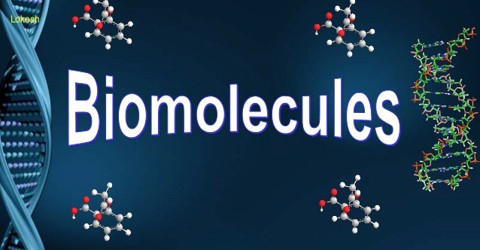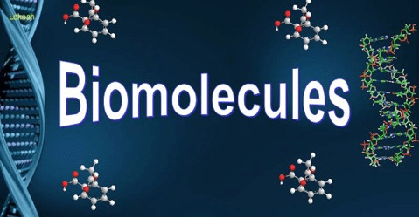
JEE (Main+Advanced) Advance Courses Biomolecules refer to the study of the chemical and physical properties of biological macromolecules, including carbohydrates, lipids, proteins, and nucleic acids. These courses cover the structure, function, and synthesis of biomolecules and their interactions in living organisms.
The JEE (Main+Advanced) Advance Courses Biomolecules are important in various fields, including biochemistry, biotechnology, pharmacology, and medicine. They provide students with the knowledge and skills necessary to understand the structure and function of biological macromolecules and how they contribute to the complexity of living systems.
The topics covered in JEE (Main+Advanced) Advance Courses Biomolecules include:
- Carbohydrates: The structure and function of carbohydrates in biological systems, including monosaccharides, disaccharides, and polysaccharides.
- Lipids: The structure and function of lipids in biological systems, including fatty acids, phospholipids, and cholesterol.
- Proteins: The structure and function of proteins in biological systems, including amino acids, peptide bonds, protein folding, and enzyme catalysis.
- Nucleic acids: The structure and function of nucleic acids in biological systems, including DNA and RNA structure, replication, transcription, and translation.
- Metabolism: The study of metabolic pathways, including glycolysis, the citric acid cycle, and oxidative phosphorylation.
- Bioenergetics: The study of the thermodynamics of biological systems and how energy is transferred and transformed in living organisms.
- Enzymes: The study of enzyme kinetics, enzyme regulation, and enzyme inhibition.
- Hormones: The study of the structure and function of hormones in biological systems, including the endocrine system.
Overall, JEE (Main+Advanced) Advance Courses Biomolecules are important for understanding the chemical basis of life and for the study of biological systems. They provide students with the necessary foundation to pursue careers in biochemistry, biotechnology, pharmacology, and medicine.
History of JEE (Main+Advance) Advance Courses Biomolecules
The study of biomolecules has a long history dating back to the early 19th century when chemists began isolating and characterizing biological compounds. However, it was not until the mid-20th century that the field of biochemistry emerged as a distinct discipline, and the study of biomolecules became a focus of scientific research.
The development of modern techniques for studying biomolecules, such as X-ray crystallography and nuclear magnetic resonance (NMR) spectroscopy, has greatly advanced our understanding of their structure and function. The discovery of the double helix structure of DNA in 1953 by James Watson and Francis Crick was a landmark event that transformed the field of biochemistry and paved the way for the study of biomolecules at the molecular level.
The importance of biomolecules in medicine and biotechnology has also driven the development of the field. The discovery of insulin in the early 20th century and the development of recombinant DNA technology in the 1970s are just two examples of how the study of biomolecules has revolutionized medicine and biotechnology.
JEE (Main+Advanced) Advance Courses Biomolecules builds on this rich history and provides students with the knowledge and skills necessary to understand the structure and function of biomolecules and their role in living organisms. The courses are designed to prepare students for careers in biochemistry, biotechnology, pharmacology, and medicine, where their understanding of biomolecules is essential.
Nature of JEE (Main+Advance) Advance Courses Biomolecules
JEE (Main+Advanced) Advance Courses Biomolecules are designed to provide students with an in-depth understanding of the chemical and physical properties of biological macromolecules, including carbohydrates, lipids, proteins, and nucleic acids. These courses are typically offered at the undergraduate level and build upon foundational courses in chemistry and biology.
The nature of JEE (Main+Advanced) Advance Courses Biomolecules is interdisciplinary, drawing on concepts from chemistry, physics, and biology. The courses cover a range of topics, including the structure, function, and synthesis of biomolecules, as well as their interactions in living organisms.
The courses typically involve a combination of lectures, laboratory work, and problem-solving exercises. In the laboratory, students have the opportunity to apply the concepts they learn in class to real-world problems, such as isolating and characterizing biomolecules.
JEE (Main+Advanced) Advance Courses Biomolecules are also designed to develop students’ critical thinking and problem-solving skills. Students are encouraged to analyze and interpret experimental data, design experiments, and develop hypotheses to explain their observations.
Overall, the nature of JEE (Main+Advanced) Advance Courses Biomolecules is rigorous and challenging, requiring a strong foundation in chemistry and biology. However, the courses provide students with a deep understanding of the chemical basis of life and prepare them for careers in a range of fields, including biochemistry, biotechnology, pharmacology, and medicine.
Importance of JEE (Main+Advance) Advance Courses Biomolecules
JEE (Main+Advanced) Advance Courses Biomolecules are important for several reasons:
- Understanding the chemical basis of life: Biomolecules are the building blocks of life, and understanding their chemical and physical properties is essential for understanding the structure and function of living organisms.
- Developing new drugs and therapies: Many diseases, such as cancer, diabetes, and Alzheimer’s, are caused by disruptions in the biochemical pathways of cells. By understanding the structure and function of biomolecules, researchers can develop new drugs and therapies to treat these diseases.
- Advancing biotechnology: The field of biotechnology relies heavily on the study of biomolecules, particularly proteins and nucleic acids. Advances in biotechnology, such as genetic engineering, have the potential to revolutionize medicine, agriculture, and other industries.
- Improving our understanding of evolution: The study of biomolecules, particularly DNA and RNA, has greatly improved our understanding of evolution and the relationships between different species.
- Preparing students for careers in science and medicine: JEE (Main+Advanced) Advance Courses Biomolecules provide students with the knowledge and skills necessary to pursue careers in biochemistry, biotechnology, pharmacology, and medicine.
In summary, the study of biomolecules is essential for understanding the chemical basis of life and has far-reaching implications for medicine, biotechnology, and other fields. JEE (Main+Advanced) Advance Courses Biomolecules are an important component of science and engineering education, providing students with the knowledge and skills necessary to tackle some of the most pressing scientific and medical challenges of our time.
Overview of JEE (Main+Advance) Advance Courses Biomolecules
JEE (Main+Advanced) Advance Courses Biomolecules are designed to provide students with a comprehensive understanding of the chemistry, structure, and function of biological macromolecules, such as carbohydrates, lipids, proteins, and nucleic acids. These courses are typically offered at the undergraduate level and build upon foundational courses in chemistry and biology.
The courses cover a range of topics, including the chemical and physical properties of biomolecules, their synthesis and degradation, and their interactions in living organisms. Students also learn about biochemical pathways and the regulation of cellular processes.
The courses typically involve a combination of lectures, laboratory work, and problem-solving exercises. In the laboratory, students have the opportunity to apply the concepts they learn in class to real-world problems, such as isolating and characterizing biomolecules.
JEE (Main+Advanced) Advance Courses Biomolecules are interdisciplinary in nature, drawing on concepts from chemistry, physics, and biology. They are designed to develop students’ critical thinking and problem-solving skills, as well as their ability to analyze and interpret experimental data.
The study of biomolecules is important for a range of fields, including biochemistry, biotechnology, pharmacology, and medicine. JEE (Main+Advanced) Advance Courses Biomolecules prepare students for careers in these fields and provide them with the foundation they need to pursue graduate studies in related fields.
Overall, JEE (Main+Advanced) Advance Courses Biomolecules are rigorous and challenging, but they provide students with a deep understanding of the chemical basis of life and the skills they need to tackle some of the most pressing scientific and medical challenges of our time.
Conclusion of JEE (Main+Advance) Advance Courses Biomolecules
In conclusion, JEE (Main+Advanced) Advance Courses Biomolecules are an important component of science and engineering education. These courses provide students with a comprehensive understanding of the chemistry, structure, and function of biological macromolecules and their interactions in living organisms. The study of biomolecules has far-reaching implications for medicine, biotechnology, and other fields, and JEE (Main+Advanced) Advance Courses Biomolecules prepare students for careers in these areas.
The courses are designed to be rigorous and challenging, but they provide students with the knowledge and skills they need to tackle some of the most pressing scientific and medical challenges of our time. They are also interdisciplinary in nature, drawing on concepts from chemistry, physics, and biology.
Overall, JEE (Main+Advanced) Advance Courses Biomolecules are an important component of undergraduate education for students interested in pursuing careers in biochemistry, biotechnology, pharmacology, and medicine. They provide a solid foundation for further study in these fields and equip students with the skills they need to make meaningful contributions to scientific research and innovation.
Structures of JEE (Main+Advance) Advance Courses Biomolecules
JEE (Main+Advanced) Advance Courses Biomolecules cover the structures of a variety of biological macromolecules, including carbohydrates, lipids, proteins, and nucleic acids.
Carbohydrates are made up of simple sugars, such as glucose and fructose, which are joined together by glycosidic bonds to form more complex structures like disaccharides and polysaccharides. These molecules play important roles in energy storage and cell structure.
Lipids are a diverse group of molecules that are important for cell structure and function, energy storage, and signaling. They include fatty acids, triglycerides, phospholipids, and cholesterol.
Proteins are composed of amino acids, which are joined together by peptide bonds to form long chains. These chains then fold into specific three-dimensional structures, which are critical for their function in the cell. Proteins have a variety of functions, including enzyme catalysis, cell signaling, and structural support.
Nucleic acids, such as DNA and RNA, are composed of nucleotides, which are joined together by phosphodiester bonds to form long chains. These chains then fold into specific three-dimensional structures, which are critical for their function in the cell. Nucleic acids store and transmit genetic information and play important roles in gene expression and regulation.
The structures of biomolecules are critical for their function in the cell and for the interactions between different biomolecules. JEE (Main+Advanced) Advance Courses Biomolecules provide students with a deep understanding of these structures and their roles in biological processes.
Application of JEE (Main+Advance) Advance Courses Biomolecules
JEE (Main+Advanced) Advance Courses Biomolecules have many applications in a variety of fields, including medicine, biotechnology, and agriculture. Here are some examples of how these courses are applied:
- Drug discovery: Understanding the structures of biomolecules is critical for the development of new drugs. JEE (Main+Advanced) Advance Courses Biomolecules provide students with the knowledge and skills they need to design drugs that interact with specific biological targets.
- Biotechnology: Biomolecules are used in many biotechnology applications, such as the production of recombinant proteins, genetic engineering of organisms, and development of biosensors. JEE (Main+Advanced) Advance Courses Biomolecules provide students with the understanding of how biomolecules can be manipulated to achieve these applications.
- Agriculture: Understanding the structures and functions of biomolecules is important for improving crop yields and developing new agricultural technologies. JEE (Main+Advanced) Advance Courses Biomolecules provide students with the knowledge and skills they need to develop new crop varieties and agricultural technologies.
- Medical diagnostics: Biomolecules are used in medical diagnostics to detect diseases and monitor treatment effectiveness. JEE (Main+Advanced) Advance Courses Biomolecules provide students with the knowledge and skills they need to develop and use these diagnostic tools.
- Environmental science: Biomolecules play important roles in environmental processes, such as carbon cycling and nutrient cycling. JEE (Main+Advanced) Advance Courses Biomolecules provide students with the knowledge and skills they need to understand these processes and develop solutions to environmental problems.
Overall, JEE (Main+Advanced) Advance Courses Biomolecules have many practical applications in a variety of fields and are critical for advancing science and technology.
Nomenclature of JEE (Main+Advance) Advance Courses Biomolecules
JEE (Main+Advanced) Advance Courses Biomolecules involve a range of complex molecules, each with their own naming conventions. Here is a brief overview of some common naming conventions for biomolecules:
- Carbohydrates: Carbohydrates are named based on the number of carbon atoms they contain. For example, a carbohydrate with five carbon atoms is called a pentose, while a carbohydrate with six carbon atoms is called a hexose. Carbohydrates with multiple sugar units are named based on the number of sugar units and the type of bond between them, such as a disaccharide or a polysaccharide.
- Lipids: Lipids are named based on their chemical structure, which can vary widely. For example, fatty acids are named based on the number of carbon atoms they contain and the number and location of double bonds. Phospholipids are named based on the type of head group attached to the phosphate group, such as choline or ethanolamine.
- Proteins: Proteins are named based on the sequence of amino acids they contain. Each amino acid is designated by a three-letter or one-letter code, such as valine (Val) or V. Proteins are typically named after the gene that encodes them or based on their function, such as insulin or collagen.
- Nucleic acids: Nucleic acids are named based on the type of sugar they contain (ribose or deoxyribose) and the type of base (adenine, guanine, cytosine, or thymine/uracil) attached to the sugar. DNA and RNA are named based on the type of sugar they contain, with DNA containing deoxyribose and RNA containing ribose.
These naming conventions are just a few examples of the many ways that biomolecules can be named. It is important for students studying JEE (Main+Advanced) Advance Courses Biomolecules to be familiar with these conventions and to understand how to apply them in practice.
Career Opportunities of JEE (Main+Advance) Advance Courses Biomolecules
JEE (Main+Advanced) Advance Courses Biomolecules offer a wide range of career opportunities in various fields. Some of the career opportunities include:
- Biotechnology: Biotechnology is a rapidly growing field that involves the use of living organisms or their products to create useful products and processes. Graduates with a background in JEE (Main+Advanced) Advance Courses Biomolecules can work in research and development, quality control, or production in biotechnology companies.
- Pharmaceutical industry: The pharmaceutical industry is responsible for developing, producing, and marketing drugs. Graduates with a background in JEE (Main+Advanced) Advance Courses Biomolecules can work in drug discovery, development, testing, and manufacturing.
- Food industry: The food industry uses biomolecules such as proteins, carbohydrates, and lipids to create new food products or improve existing ones. Graduates with a background in JEE (Main+Advanced) Advance Courses Biomolecules can work in research and development, quality control, or production in the food industry.
- Academic research: Graduates with a background in JEE (Main+Advanced) Advance Courses Biomolecules can pursue a career in academic research as a professor, postdoctoral researcher, or research scientist.
- Healthcare: Graduates with a background in JEE (Main+Advanced) Advance Courses Biomolecules can work in healthcare in various roles such as medical research, biotechnology, and clinical laboratory science.
- Environmental science: Biomolecules play a significant role in environmental science, and graduates with a background in JEE (Main+Advanced) Advance Courses Biomolecules can work in environmental science and technology, such as bioremediation, biodegradation, and environmental monitoring.
Overall, the career opportunities for graduates with a background in JEE (Main+Advanced) Advance Courses Biomolecules are diverse and offer a range of options in different industries.

